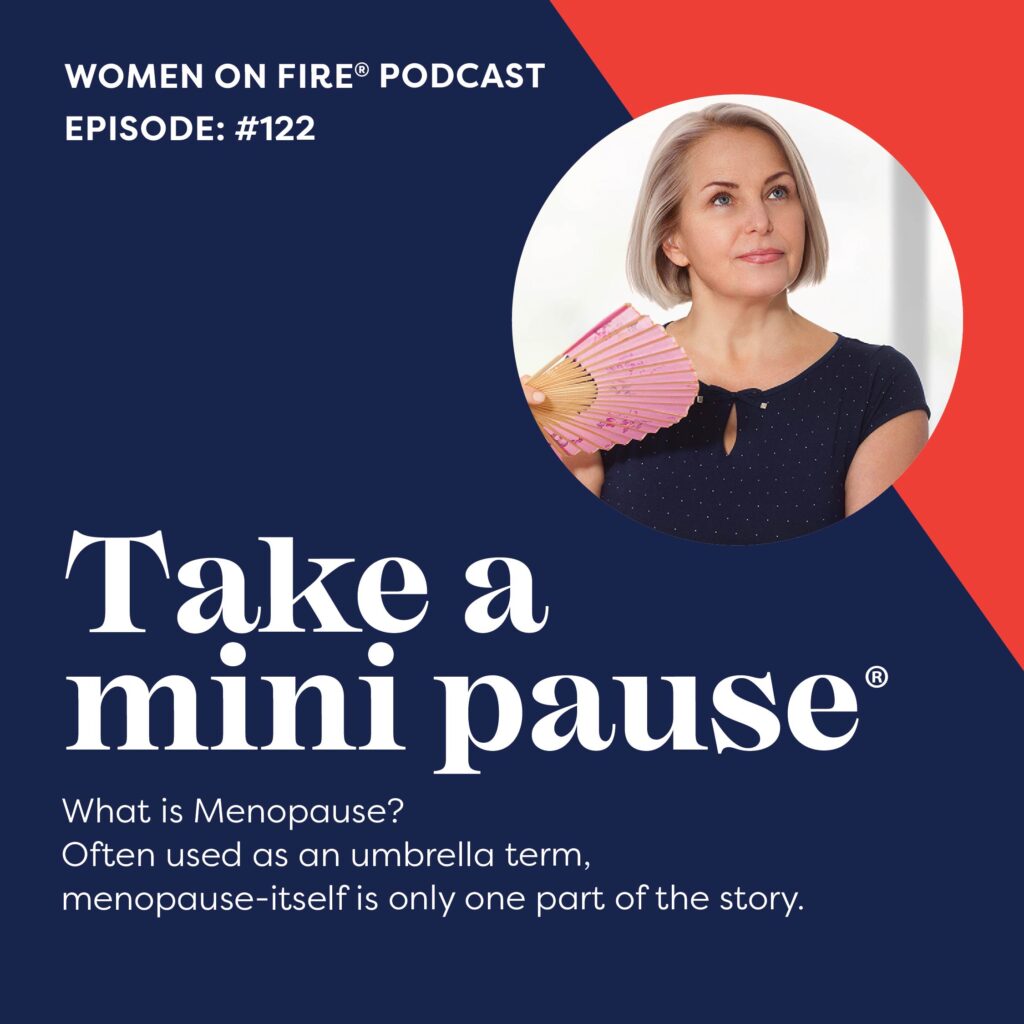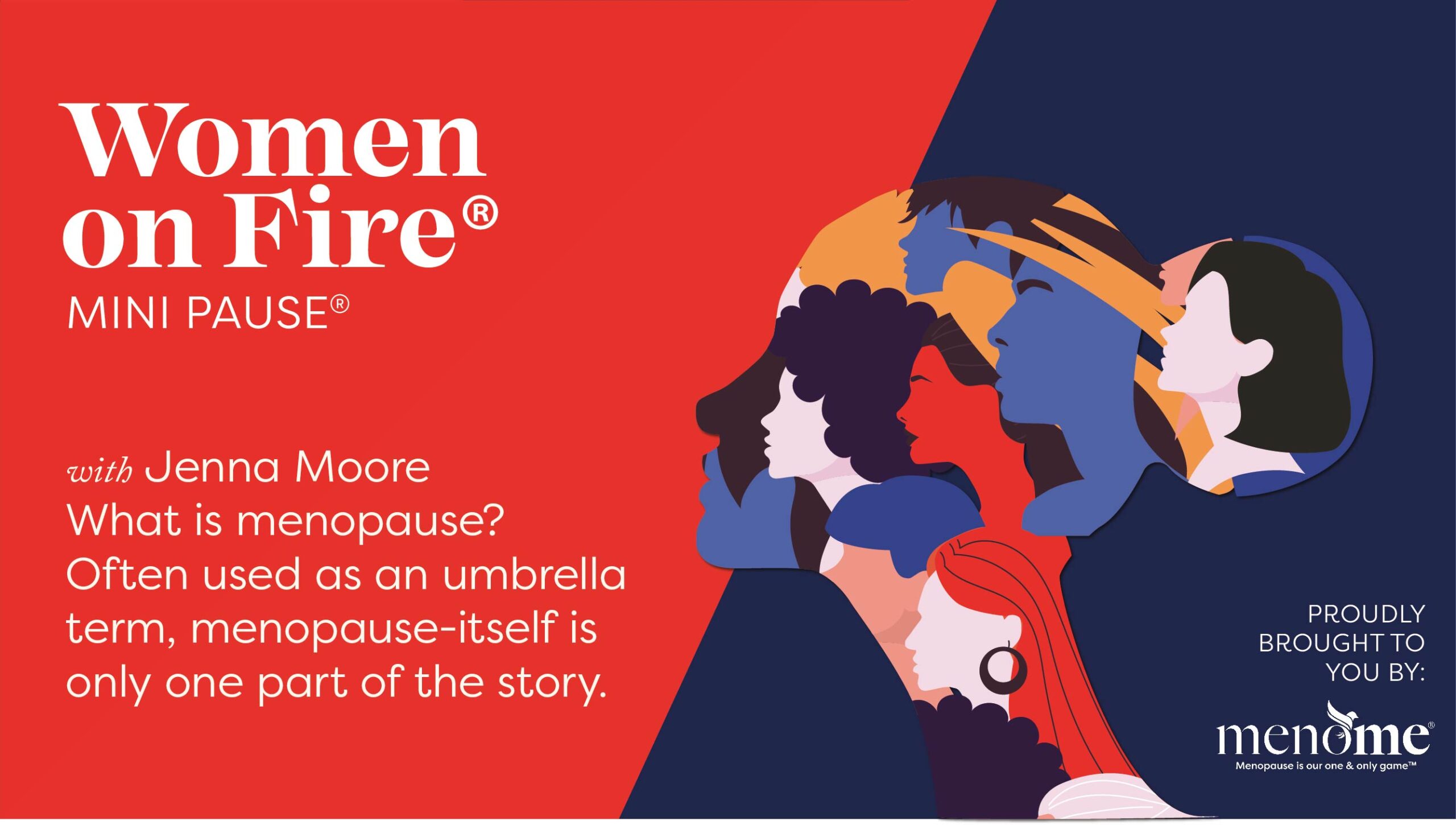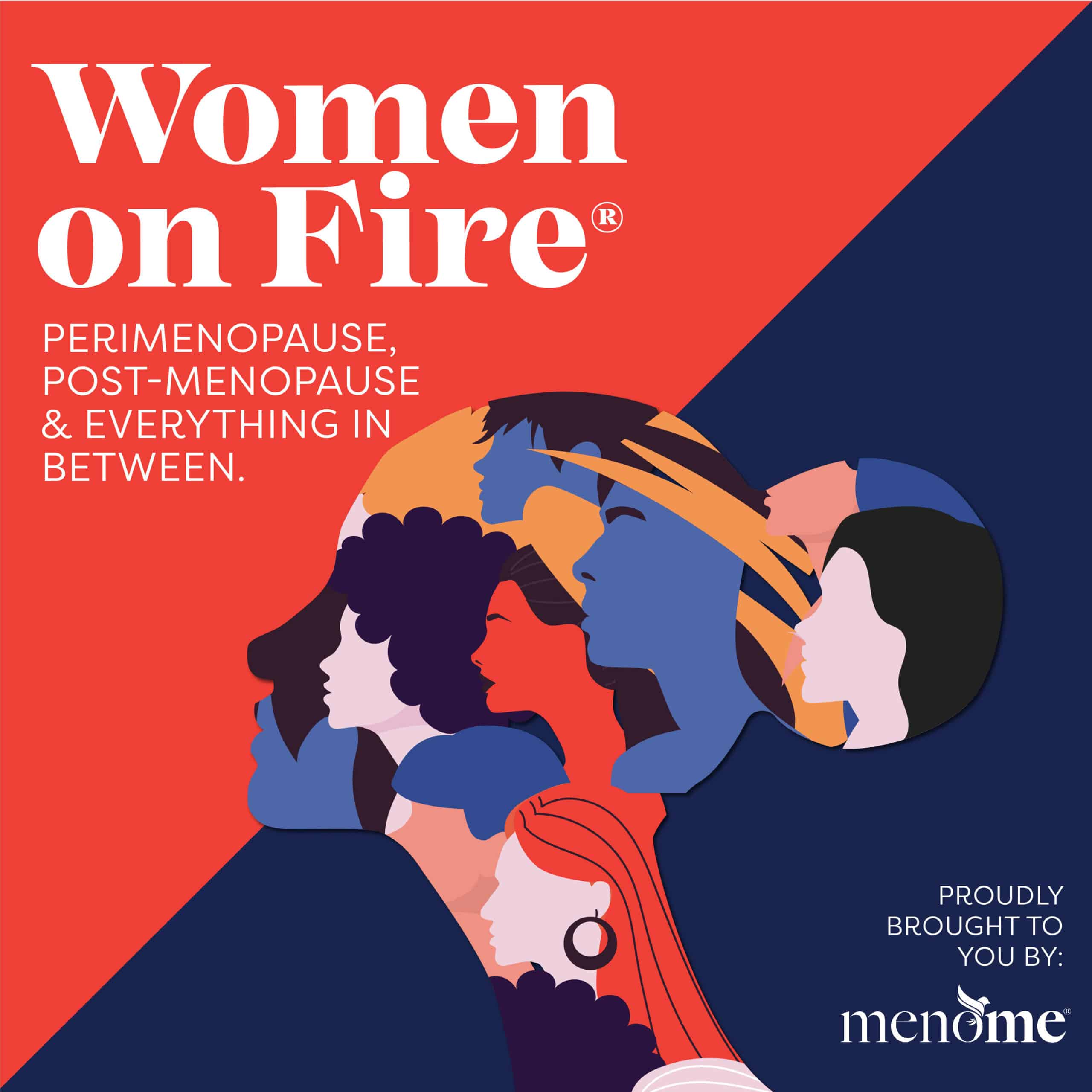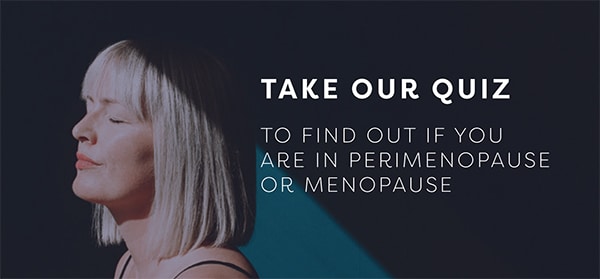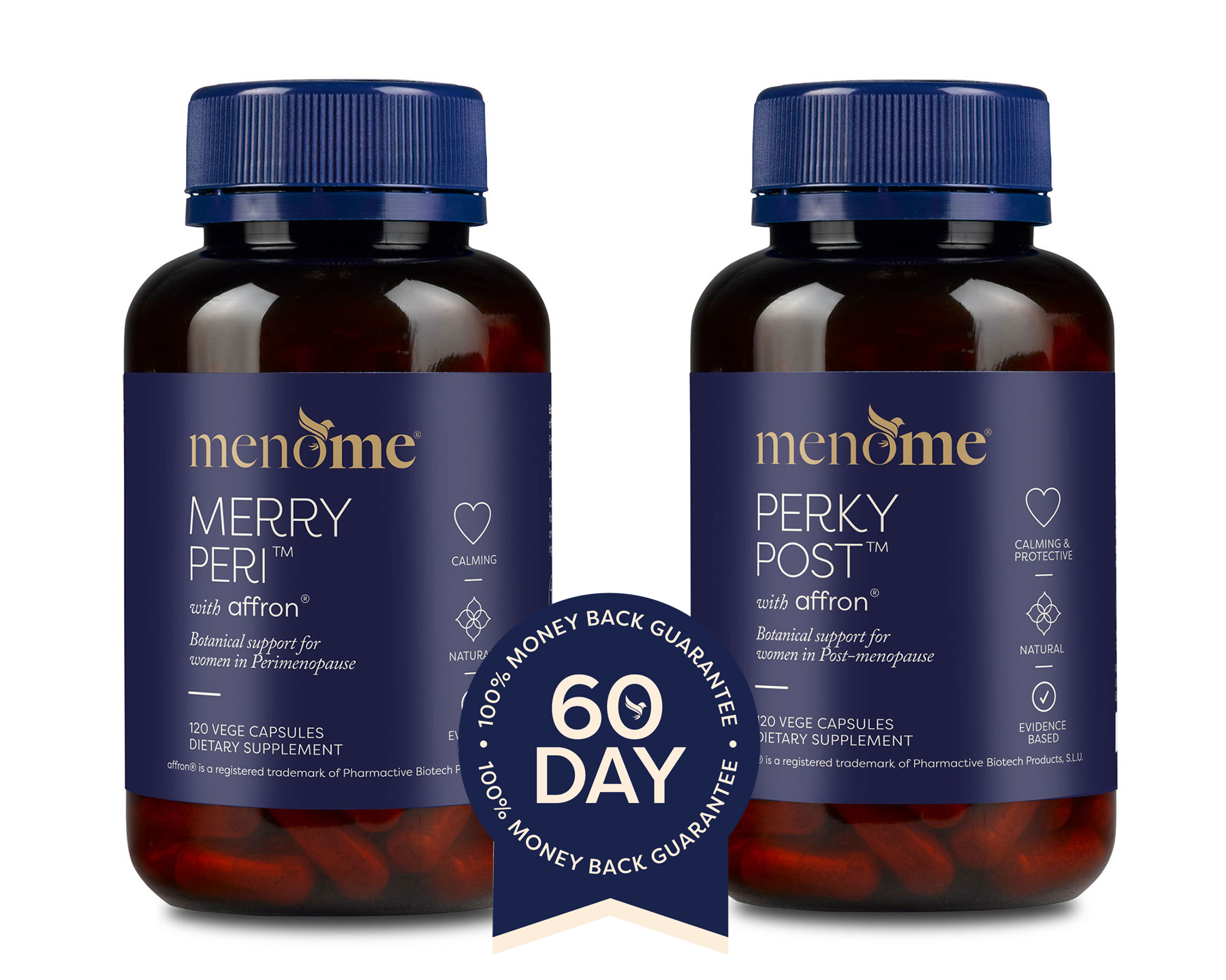Podcast Interview
In this episode, we talk about:
- Menopause is commonly used as an umbrella term, but it’s not (1:01)
- Signs & symptoms (1:27)
- Perimenopause, menopause and post-menopause (1:55)
- Average age for menopause (4:56)
- About post-menopause (5.42)
Episode Resources:
- Read the 34 most common symptoms of perimenopause here
- Learn more about Merry Peri® and Perky Post® with affron® here.

